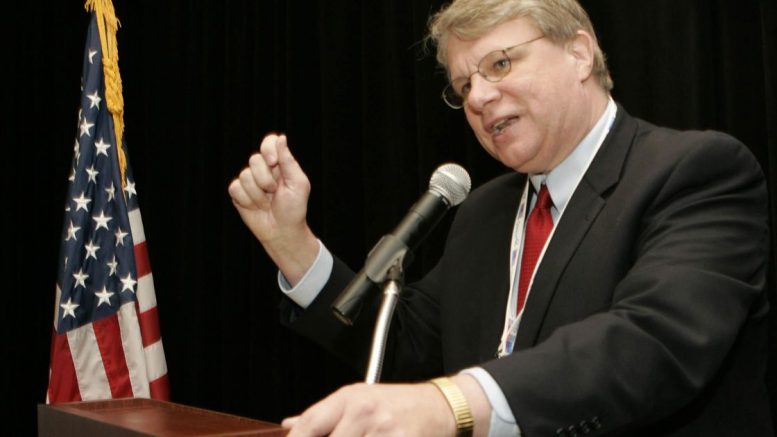Lansing — A new Michigan law that eliminated straight-ticket voting will create longer lines on Election Day, disproportionally affect African-Americans and disenfranchise voters with disabilities, according to a federal lawsuit seeking to overturn the state statute.
A complaint filed Monday in Detroit on behalf of three local residents argues the law violates the equal protection clause of the 14th Amendment to the U.S. Constitution, the Voting Rights Act and the Americans with Disabilities Act.
Michigan had been one of 10 states that still allowed straight-ticket voting, which gave voters the option of selecting all candidates of a single party on the partisan section of the ballot. The policy was widely believed to benefit Democratic candidates, especially less recognizable names lower on the ballot.
The state offered straight-ticket voting for 125 years, and the courts must take the history into account when considering the burden the new law will place on voters, said the plaintiffs’ attorney, Mark Brewer of Goodman Acker, P.C.
“Millions of voters are going to show up this fall, and they’re not going to find that option on the ballot,” said Brewer, former chairman of the Michigan Democratic Party.
“They’re going to be angry, they’re going to be confused and they’re going to have to take the lengthy time to vote every race on the partisan ballot. That is going to make the lines and polling places that much worse.”
Michigan’s Republican-led Legislature approved the elimination of straight-ticket voting in December, with supporters arguing it would encourage a more informed electorate and end a policy holdover from the days of big party bosses.
“This is a good change that improves Michigan elections for all of us and allows individual candidates to stand on their own merit,” House GOP spokesman Gideon D’Assandro said Tuesday in response to the complaint. “Mark Brewer would rather defend the status quo and politics as usual. His lawsuit puts politics over people.”
Gov. Rick Snyder, in signing the bill to eliminate straight ticket voting, said he “strived to put people before politics” and encouraged voters to do the same by selecting individual candidates, not just Republicans or Democrats.
But in a letter to legislators, the governor also acknowledged concerns, voiced by local election officials, that the policy change could lead to longer voting lines.
Snyder asked the Legislature to address the concerns by reconsidering a companion bill that would have allowed a version of no-reason absentee voting, which had won House approval but was not taken up by the Senate and has not been taken up since his letter.
Michigan legislators also voted to end straight-ticket voting in 2001, but the Michigan Democratic Party led a petition drive to put the issue on the ballot, and voters chose to keep the option in place.
The lawsuit, filed in U.S. District Court for the Eastern District of Michigan, seeks to permanently prohibit the state from enforcing the new law, which would re-institute the straight-ticket voting option this fall.
The complaint alleges that the “arbitrary and irrational abolition” of straight-ticket voting will deny voters an opportunity they have long enjoyed, leading to “lines, congestion and confusion” at polling places.
The policy will cause disproportionally longer lines and wait times for black voters, according to the complaint, because African-Americans use the straight-ticket option at a higher rate than white voters and may take longer to vote because of a historical educational achievement gap.
Longer lines will also “create hardships for voters with disabilities for whom walking or standing in line is a burden,” Brewer and his co-counsel wrote.
The lawsuit names as a plaintiff Michigan Secretary of State Ruth Johnson, the state’s chief election officer. Her department has not yet been served with the lawsuit and won’t comment on pending litigation, said spokesman Fred Woodhams.
Source: www.detroitnews.com




